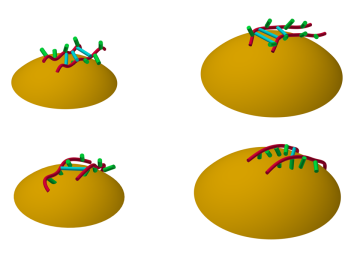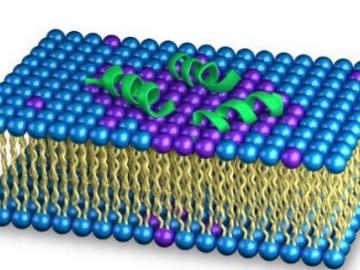Filter News
Area of Research
News Topics
- (-) Biomedical (1)
- (-) Polymers (1)
- 3-D Printing/Advanced Manufacturing (6)
- Advanced Reactors (5)
- Artificial Intelligence (5)
- Big Data (5)
- Clean Water (2)
- Composites (1)
- Computer Science (15)
- Cybersecurity (1)
- Energy Storage (4)
- Environment (6)
- Fusion (3)
- Grid (3)
- Machine Learning (3)
- Materials Science (9)
- Microscopy (2)
- Molten Salt (1)
- Nanotechnology (2)
- Neutron Science (8)
- Nuclear Energy (9)
- Physics (2)
- Quantum Science (3)
- Space Exploration (3)
- Summit (2)
- Sustainable Energy (2)
- Transportation (7)
Media Contacts

A team of researchers at Oak Ridge National Laboratory have demonstrated that designed synthetic polymers can serve as a high-performance binding material for next-generation lithium-ion batteries.

As the rise of antibiotic-resistant bacteria known as superbugs threatens public health, Oak Ridge National Laboratory’s Shuo Qian and Veerendra Sharma from the Bhaba Atomic Research Centre in India are using neutron scattering to study how an antibacterial peptide interacts with and fights harmful bacteria.




